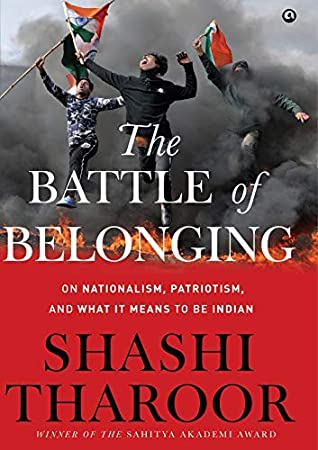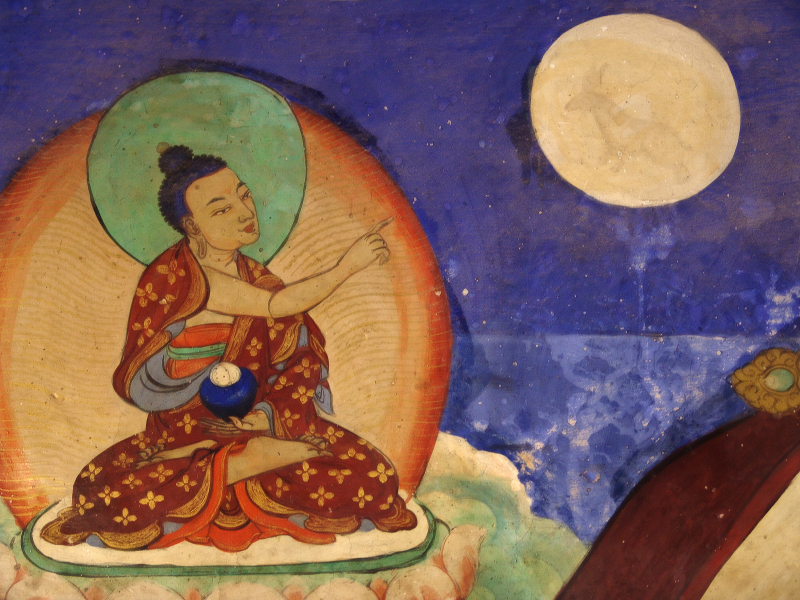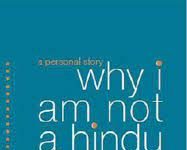This “moral transparency” is apparent in “The American’s Creed” written by William Tyler Page in 1917, later passed as a resolution by the US House of Representatives on 3 April 1918, that reads:
“I believe in the United States of America, as a government of the people, by the people, for the people; whose just powers are derived from the consent of the governed; a democracy in a republic; a sovereign Nation of many sovereign States; a perfect union, one and inseparable; established upon those principles of freedom, equality, justice, and humanity for which American patriots sacrificed their lives and fortunes. I therefore believe it is my duty to my country to love it, to support its Constitution, to obey its laws, to respect its flag, and to defend it against all enemies.”
There is nothing there that, once applied to one’s own nation, any nationalist anywhere could reasonably object to. Personally, I am somewhat sympathetic to the Tagore-Orwell consensus that nationalism essentially lends itself to negative outcomes; but I must admit the more nuanced view, well expressed by scholars like the American philosopher and historian Hans Kohn, who distinguished between “good” and “evil” nationalism, German nationalism typifying the latter.
The positive view of nationalism is that it is a constructive force, an ideology that builds a state (the nation-state) and so organises a community of people more efficiently and purposefully, promoting the cohesion of democratic institutions and values; the negative view sees it as a malign, chauvinist, hostile, and power-hungry ideology that tends to subjugate and destroy.
The positive view is predicated on the acknowledgement that nationalism has driven many successful independence movements, including the Greek and Irish revolutions (both against imperial powers that denied them their nationhood), the Zionist movement that created modern Israel, and the dissolution of the Soviet Union (which permitted the reassertion of earlier nationalisms long stifled in the collective enterprise of Soviet Communism).
The negative view points to the Nazis, the Italian Fascists, and the half-century of nationalist conflict that twice tore the world apart in the first half of the twentieth century. “Nationalist conflict has caused enormous suffering, both directly and indirectly,” Gellner wrote. “Nationalism is not just a phenomenon, it is also a problem.”Of course, a cynical interpretation of such examples is that nationalism is “good” when it succeeds and “bad” when it fails, since history is written by the winners and the losers can be dismissed as rebels, secessionists, or worse. The verdict on Kurdish nationalism, for instance, is yet to be written, since it has succeeded only partly with the achievement of autonomy but not sovereignty in Iraq, with control of territory but not recognition in Syria, and been effectively suppressed in Iran and Turkey – the countries over whose territories the Kurdish people, and therefore a putative Kurdish nation, would extend.
As for myself, I am inclined to associate what some call “good nationalism” with civic nationalism and patriotism, and leave the bald term “nationalism” to what is seen by most as “bad nationalism”.
“At its core,” writes the American scholar Amitai Etzioni, “patriotism points to passionate concern for one’s fellow citizens and the community they share, a resolve to love one’s nation despite its defects and to work for its flourishing. This is what I mean by ‘good’ nationalism.” While “good nationalism” and “patriotism” have a lot in common, there are still differences between the two – what we understand by “good nationalism” is really civic nationalism with liberal democracy stirred in, whereas patriotism is largely a positive emotional and sentimental love of homeland.
Speaking for myself, when I refer to my own nationalism, spurn any non-Indian allegiance, and proudly wear a tricolour lapel pin every day, I am really subscribing to a hybrid of good nationalism and patriotism that rests on the institutional and constitutional pillars of civic nationalism. Between patriotism and nationalism, though, I would argue that patriotism is about what is right and nationalism is about might. Both involve love of country and a willingness to make the ultimate sacrifice for it, but while the patriot is prepared to die for his homeland, the nationalist is prepared to kill for his state.
Scholars across a vast literature have identified five major elements in nationalism: the yearning for national unity (and even uniformity), the requirement of exclusive loyalty, the striving for national (rather than individual) freedom, the aspiration for exclusiveness and distinctiveness, and the quest for honour and prestige among nations. This last is where the biggest problem lies, for this quest for honour and prestige easily becomes an urge for domination. When a nation’s dignity requires the defeat of others, when your honour is seen through the need to assert your superiority to others, nationalism can easily degenerate into chauvinism, belligerence, and the rejection of coexistence.
“Nationalism is in ill odour today in the West and has become the parent of aggressiveness, intolerance and brutal violence. All that is reactionary seeks shelter under that name – fascism, imperialism, race bigotry, and the crushing of that free spirit of enquiry which gave the semblance of greatness to Europe in the nineteenth century. Culture succumbs before its onslaught and civilisation decays. Democracy and freedom are its pet aversions, and in its name innocent men and women and children in Spain are bombed to death, and fierce race persecution takes place.
Yet it was nationalism that built up the nations of Europe a hundred years ago and provided the background for that civilisation whose end seems to be drawing near. And it is nationalism which is the driving force today in the countries of the East which suffer under foreign domination and seek freedom. To them it brings unity and vitality and a lifting of the burdens of the spirit which subjection entails.
There is virtue in it up to a certain stage – till then it is a progressive force adding to human freedom. But even then it is a narrowing creed and a nation seeking freedom, like a person who is sick, can think of little besides its own struggle and its own misery.
India has been no exception to this rule and often, in the intensity of her struggle, she has forgotten the world and thought only in terms of herself. But as strength came to her and confidence born of success, she began to look beyond her frontiers…”
It is ironic that, in its earliest expressions, nationalism breathed a certain spirit of universalism. When the French overthrew their king with shouts of “Liberty, Equality, Fraternity” and proclaimed their Declaration of the Rights of Man and of the Citizen, they were asserting a slogan and a set of principles that they believed to be valid not only for themselves, the French people, but for all people everywhere.
There was a quasi-religious fervour to the enterprise. As the American sociologist Mark Juergensmeyer observes, religion and nationalism both provide an overarching framework of moral order, a carapace that commands ultimate loyalty from those who shelter under it. “Nowhere is this common form of loyalty more evident than in the ability of nationalism and religion, alone among all forms of allegiance, to give moral sanction to martyrdom and violence.:”
Llobera attributes the success of nationalism in modernity largely to “the sacred character that the nation has inherited from religion. In its essence the nation is the secularised god of our times.”
However, for all certitudes and positives associated with nationalism, side by side there have always been negatives and ambiguities as well. In a report on nationalism in 1939, as the dark clouds of World War II were gathering in the skies above, the Royal Institute of International Affairs at Chatham House, London, referred to the ambiguity in understanding nationalism. Its report observed that the term nationalism “is used in such a sense that Mazzini, Gladstone, and Woodrow Wilson can be described as exponents of nationalism, as well as Herr Hitler”.
The above passage is an excerpt from Parliamentarian Shashi Tharoor’s book The Battle of Belonging: On Nationalism, Patriotism And What It Means To Be Indian, published by Aleph Book Company.














